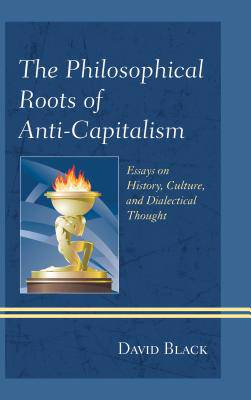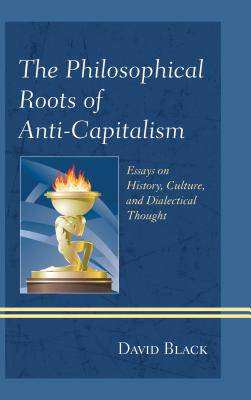
- Afhalen na 1 uur in een winkel met voorraad
- Gratis thuislevering in België vanaf € 30
- Ruim aanbod met 7 miljoen producten
- Afhalen na 1 uur in een winkel met voorraad
- Gratis thuislevering in België vanaf € 30
- Ruim aanbod met 7 miljoen producten
Zoeken
The Philosophical Roots of Anti-Capitalism
Essays on History, Culture, and Dialectical Thought
David Black
€ 93,45
+ 186 punten
Uitvoering
Omschrijving
This book examines the origins of philosophy in Greek Antiquity and considers key moments of philosophic history as related to revolutionary change, from the French Revolution of 1789 to the May Events of 1968 and beyond. David Black reads Hegel's philosophy--which seems to come to the fore at various "birthtimes in history"--as anticipating Marx's critique of capital, in which the logic of the system intimates a realm beyond it.
Specificaties
Betrokkenen
- Auteur(s):
- Uitgeverij:
Inhoud
- Aantal bladzijden:
- 144
- Taal:
- Engels
- Reeks:
Eigenschappen
- Productcode (EAN):
- 9781498540933
- Verschijningsdatum:
- 22/04/2016
- Uitvoering:
- Paperback
- Formaat:
- Trade paperback (VS)
- Afmetingen:
- 150 mm x 226 mm
- Gewicht:
- 272 g

Alleen bij Standaard Boekhandel
+ 186 punten op je klantenkaart van Standaard Boekhandel
Beoordelingen
We publiceren alleen reviews die voldoen aan de voorwaarden voor reviews. Bekijk onze voorwaarden voor reviews.











